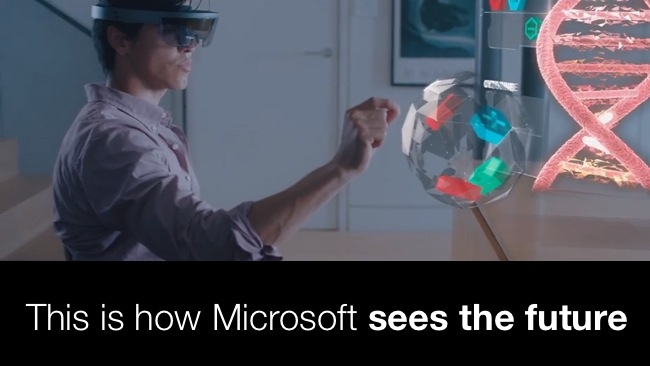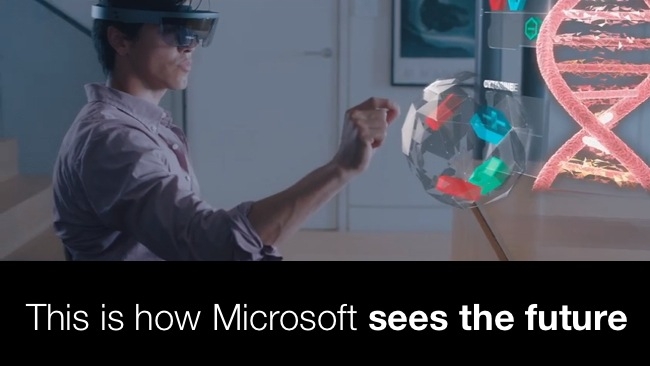
 Microsoft HoloLens
Microsoft HoloLens
Holographic viewing might just become the most important thing about Windows 10
We’re not sure but we may have just seen the biggest thing in, er, things, for a long time. It may also be a sign that we’re approaching the technological singularity.
Microsoft’s HoloLens has just been announced as an integral part of Windows 10. It’s a headset that will allow users to augment reality in their own 3D living space. It’s not completely clear how the device works but it looks like it might be a kind of combination of a virtual reality visor, like Oculus Rift (now proudly owned by Facebook) and the cancelled-this-week Google Glass, which “floats” a computer screen in the visual field of the user.
One of the tell-tale signs that we’ve reached the technological singularity, which is when the rate of progress in technology is practically vertical from our point of view - is that things will just come out of the blue and downright surprise us. It does rather look like the HoloLens might be consistent with that definition.
There’s a video below, which, if anything, undersells the HoloLens. It shows it being able to portray little cartoon characters running around a - real - living space. More importantly, it will allow users to interact with 3D objects that will appear to be in front of them.
Rather intriguingly, it seems to come already integrated in Windows 10, the new version of Windows whose adoption curve might be steeper than previous iterations not least on the grounds that it’s free. It also promises to be a better integration of a touchscreen and a desktop environment, although it’s not altogether ludicrous to think that Microsoft is placing a long bet on the ultimate computer interface being, well, waving your hands around in a 3D space, whatever that will be called. Oh, and speech as well - Cortana, Microsoft’s version of Siri - will be build into Windows ten as well.
It may be early days yet, but there is growing evidence that Virtual and Augmented reality will be the dominant space in which we will interact with computers and they will interact with us in the future. What we’ve learned today certainly adds weight to the argument that Facebook bought Oculus Rift not just because it wanted it as a plaything, but because it wanted to be in the forefront of new ways for computer and social network users to interact with each other.
And of course the more virtual reality becomes the norm, so we will have to accommodate this new paradigm in video and movie making. Although quite where we start with that is anyone’s guess.
Tags: VR & AR


Comments